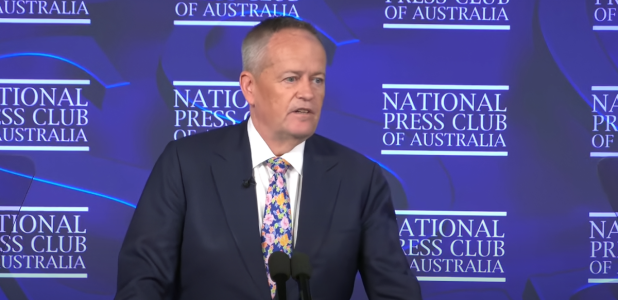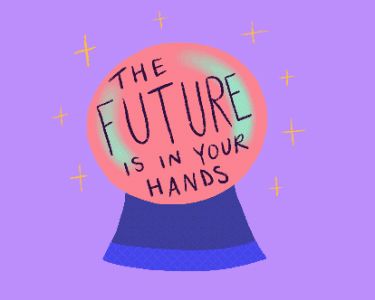Australian TV is dying! Discover troubling truth politician just exposed
By
- Replies 31
In a candid revelation that has sent shockwaves through the Australian media landscape, Bill Shorten, the current government services minister and former Labor leader, has sounded the alarm on the precarious state of Australian free-to-air television.
During a recent appearance on ABC's Q+A program, Shorten described the situation as 'diabolical trouble,' highlighting the industry's intense pressure from online giants and the controversial reliance on gambling ad revenue to stay afloat.
The traditional bastion of Australian entertainment, free-to-air TV, has long been a staple in Aussie households. It offers news, sports, and family programming without a subscription.
However, the rise of digital platforms and streaming services has dramatically altered Australians' viewing habits, particularly among the younger demographics.
With its vast content, the internet has disrupted the once-dominant free-to-air model, leading to a significant decline in viewership and advertising revenue.
‘The free-to-air media is under massive attack by Facebook [and is] completely disrupted by the internet,’ Mr Shorten said.
‘We got ourselves in this wicked situation where now some free-to-air media need gambling ad revenue … in order just to stay afloat.’
‘Now, some of you might say, well, bugger them, just don’t worry. We don’t need free-to-air media. It’s fair to say many of us don’t watch it much…but free-to-air media is in diabolical trouble.’
Mr Shorten's comments come as the Australian government grapples with the ethical and social implications of gambling advertisements on television.
The pervasive nature of these ads, especially during prime time and around children's programming and live sports events, has sparked a heated debate about their impact on society.
‘I still believe in having a free-to-air media sector because the problem is, if you kill the free-to-air media, what’s going to replace it?’ He asked.
‘I don’t want Mark Zuckerberg or Facebook in charge of my news feeds. He’s not even paying the Australian media for what they report.’
While some politicians and advocacy groups are pushing for an outright ban on gambling ads, Mr Shorten has expressed scepticism about the effectiveness of complete prohibition, instead advocating for a more moderate approach.
The Labor Party's proposed solution includes banning gambling ads during children's programs and the hour before or after a live sports event.
There would be a limit of two gambling ads per hour on each channel until 10 pm.
This proposal aims to balance reducing the exposure of harmful gambling content to vulnerable viewers and ensuring the financial viability of free-to-air networks.
Prime Minister Anthony Albanese has also intervened, acknowledging the untenable status quo and emphasizing the government's commitment to addressing gambling harm without causing unintended consequences.
The proposed reforms are expected to be discussed in the caucus, and the government is taking a comprehensive approach to a complex issue.
However, only some are satisfied with the proposed measures. Senator Jacqui Lambie and Independent Goldstein MP Zoe Daniel call for a complete ban on gambling ads.
Daniel, in particular, has been vocal on social media, challenging Shorten's stance and demanding immediate action to ban all gambling ads.
‘The minister for communications and the minister for social services are getting on with tackling gambling harm comprehensively,’ Mr Albanese said.
‘And we’re doing that in a way that will ensure there aren’t unintended consequences.’
‘We’re taking a comprehensive approach, recognising this is a complex issue.’’
On Monday night’s Q+A program, Senator Jacqui Lambie proposed that the major parties were reluctant to enforce a total ban because they wanted to avoid criticism from broadcasters during the election.
Mr Shorten rejected this claim.
‘I know it, they know it, and they don’t have the courage to stand up against them for the sake of our kids, and that’s all it comes down to,’ Senator Lambie said.
After Monday night’s Q+A, Ms Daniel took to social media on Tuesday to assert that Mr Shorten was mistaken.
‘I love sport, and I also value the media, but our first responsibility is to protect people, especially our children, from an avalanche of gambling ads, not to protect the gambling and the media companies and the sporting codes,’ she said.
Ms Daniel stated that while the profitability of media companies and the support for journalism were important issues, they were separate from the problem of gambling ads.
She argued that these ads were causing significant harm to communities and fostering a new generation of gamblers.
‘No more excuses, Bill. It’s time to show some courage, stand up to these powerful interests, do what Australians want, and do what our communities want, and that is to ban all gambling ads now,’ she continued.
Credit: @zdaniel / X (Formerly known as Twitter)
ACT Senator David Pocock has also advocated for a complete ban, declaring on ABC Radio National Tuesday that a partial ban would be a 'betrayal of Australians.'
‘Eighty per cent of Australians want this, and we have a government that doesn’t have the guts actually to stand up to the gambling industry, doesn’t have the imagination to work with TV to find a way to ensure that they are viable,’ he said.
Greens Senator Sarah Hanson-Young, who introduced her party’s Bill advocating for a complete ban on televised gambling ads, has also criticised the government.
She acknowledged the challenges faced by media and the difficulties with major social media platforms.
Still, she emphasised that vulnerable children and families suffering from gambling should not bear the burden of these issues.

What are your thoughts on the state of Australian free-to-air television? Do you believe a total ban on gambling ads is necessary, or is a more moderate approach the way forward? Share your views and experiences with us in the comments below.
During a recent appearance on ABC's Q+A program, Shorten described the situation as 'diabolical trouble,' highlighting the industry's intense pressure from online giants and the controversial reliance on gambling ad revenue to stay afloat.
The traditional bastion of Australian entertainment, free-to-air TV, has long been a staple in Aussie households. It offers news, sports, and family programming without a subscription.
However, the rise of digital platforms and streaming services has dramatically altered Australians' viewing habits, particularly among the younger demographics.
With its vast content, the internet has disrupted the once-dominant free-to-air model, leading to a significant decline in viewership and advertising revenue.
‘The free-to-air media is under massive attack by Facebook [and is] completely disrupted by the internet,’ Mr Shorten said.
‘We got ourselves in this wicked situation where now some free-to-air media need gambling ad revenue … in order just to stay afloat.’
‘Now, some of you might say, well, bugger them, just don’t worry. We don’t need free-to-air media. It’s fair to say many of us don’t watch it much…but free-to-air media is in diabolical trouble.’
Mr Shorten's comments come as the Australian government grapples with the ethical and social implications of gambling advertisements on television.
The pervasive nature of these ads, especially during prime time and around children's programming and live sports events, has sparked a heated debate about their impact on society.
‘I still believe in having a free-to-air media sector because the problem is, if you kill the free-to-air media, what’s going to replace it?’ He asked.
‘I don’t want Mark Zuckerberg or Facebook in charge of my news feeds. He’s not even paying the Australian media for what they report.’
While some politicians and advocacy groups are pushing for an outright ban on gambling ads, Mr Shorten has expressed scepticism about the effectiveness of complete prohibition, instead advocating for a more moderate approach.
The Labor Party's proposed solution includes banning gambling ads during children's programs and the hour before or after a live sports event.
There would be a limit of two gambling ads per hour on each channel until 10 pm.
This proposal aims to balance reducing the exposure of harmful gambling content to vulnerable viewers and ensuring the financial viability of free-to-air networks.
Prime Minister Anthony Albanese has also intervened, acknowledging the untenable status quo and emphasizing the government's commitment to addressing gambling harm without causing unintended consequences.
The proposed reforms are expected to be discussed in the caucus, and the government is taking a comprehensive approach to a complex issue.
However, only some are satisfied with the proposed measures. Senator Jacqui Lambie and Independent Goldstein MP Zoe Daniel call for a complete ban on gambling ads.
Daniel, in particular, has been vocal on social media, challenging Shorten's stance and demanding immediate action to ban all gambling ads.
‘The minister for communications and the minister for social services are getting on with tackling gambling harm comprehensively,’ Mr Albanese said.
‘And we’re doing that in a way that will ensure there aren’t unintended consequences.’
‘We’re taking a comprehensive approach, recognising this is a complex issue.’’
On Monday night’s Q+A program, Senator Jacqui Lambie proposed that the major parties were reluctant to enforce a total ban because they wanted to avoid criticism from broadcasters during the election.
Mr Shorten rejected this claim.
‘I know it, they know it, and they don’t have the courage to stand up against them for the sake of our kids, and that’s all it comes down to,’ Senator Lambie said.
After Monday night’s Q+A, Ms Daniel took to social media on Tuesday to assert that Mr Shorten was mistaken.
‘I love sport, and I also value the media, but our first responsibility is to protect people, especially our children, from an avalanche of gambling ads, not to protect the gambling and the media companies and the sporting codes,’ she said.
Ms Daniel stated that while the profitability of media companies and the support for journalism were important issues, they were separate from the problem of gambling ads.
She argued that these ads were causing significant harm to communities and fostering a new generation of gamblers.
‘No more excuses, Bill. It’s time to show some courage, stand up to these powerful interests, do what Australians want, and do what our communities want, and that is to ban all gambling ads now,’ she continued.
Credit: @zdaniel / X (Formerly known as Twitter)
ACT Senator David Pocock has also advocated for a complete ban, declaring on ABC Radio National Tuesday that a partial ban would be a 'betrayal of Australians.'
‘Eighty per cent of Australians want this, and we have a government that doesn’t have the guts actually to stand up to the gambling industry, doesn’t have the imagination to work with TV to find a way to ensure that they are viable,’ he said.
Greens Senator Sarah Hanson-Young, who introduced her party’s Bill advocating for a complete ban on televised gambling ads, has also criticised the government.
She acknowledged the challenges faced by media and the difficulties with major social media platforms.
Still, she emphasised that vulnerable children and families suffering from gambling should not bear the burden of these issues.
Key Takeaways
- Bill Shorten, government services minister, has warned that Australian free-to-air TV is in 'diabolical trouble' due to financial pressures, including competition from internet platforms like Facebook.
- There are ongoing discussions about managing gambling advertising, with proposals for limits on gambling ads rather than an outright ban to maintain revenue for free-to-air broadcasters.
- Labor is proposing gambling ad bans during children's programs, limiting ads to two per hour until 10 pm, and prohibiting ads in the hour before and after a live sports event.
- The move is being criticised by some, including MPs and senators who argue for a complete ban on gambling advertising to protect vulnerable individuals, especially children, from gambling's harms.
Last edited by a moderator:










